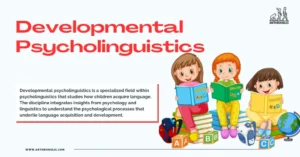AI Answer Evaluation Platform Live Now. Try Free Answer Evaluation Now
Alterity
Alterity, from the Latin ‘alteritas’, denotes the state of being ‘other’ or ‘different’. The term is used predominantly in philosophical and cultural contexts to explore the concepts of diversity, difference, and identity. It is fundamental to any process that seeks to understand the self and the other and has implications for our social, political, and cultural lives. Alterity poses the question: “How do we perceive and interact with those who are different from us?” [1].

The Philosophical Origins of Alterity
Early Philosophical Perspectives
The concept of alterity dates back to the ancient Greeks who posed the dichotomy of the self and the other. This dichotomy laid the groundwork for a deep-rooted tradition within Western philosophy that placed emphasis on the identity of the self and tended to marginalize the other. In this respect, the other was viewed as separate and different from the norm [2].
The Ethics of Alterity
Levinas, a 20th-century philosopher, significantly contributed to the notion of alterity by focusing on the ethical responsibility we bear towards the other. He argued that the other isn’t just different but utterly unique and beyond our complete comprehension, so we have an ethical duty to respect and respond to this difference. For Levinas, the face-to-face encounter with the other can stir a sense of responsibility and compassion [3].
Alterity in Cultural and Social Contexts
In Cultural Studies
In cultural studies, alterity is employed to examine the way in which cultures construct their identities by contrasting themselves with others. Edward Said’s concept of “Orientalism” offers a compelling illustration of alterity in action, describing how the West constructed its own identity by distinguishing and distancing itself from the East as the ‘other’ [4].
In Post-colonial Studies
Post-colonial studies often employ the concept of alterity to examine the effects of colonial power dynamics on the identities of both the colonized and the colonizers. Homi K. Bhabha’s theory of hybridity explores the notion of the other and the self as constantly interacting and influencing each other. In this context, alterity isn’t just about difference but also about interconnection and transformation [5].
Application of Alterity in Other Fields
- Psychology: Alterity helps us understand the processes of identity formation and how we perceive and interact with those who are different from us. This includes the exploration of outgroup bias, prejudice, and discrimination [6].
- Literature and Film: Authors and filmmakers often use alterity to explore and challenge cultural, racial, and gender norms, pushing the audience to consider different perspectives [7].
- Education: By fostering a sense of alterity in the classroom, educators can encourage students to respect and understand different cultures, histories, and perspectives, promoting a more inclusive learning environment [8].
| Field | Use of Alterity |
|---|---|
| Psychology | Exploration of identity and bias |
| Literature and Film | Challenge cultural and societal norms |
| Education | Promote inclusive learning |
Conclusion
The concept of alterity can help us navigate a complex, diverse world, providing a framework for understanding difference, promoting inclusivity, and fostering empathy. It calls for us to ethically respond to the other, acknowledging their uniqueness, and valuing their difference. Ultimately, alterity compels us to reflect on our own identities, beliefs, and biases and challenge the norms and structures that marginalize or exclude the other [9].
References
[1] Alterity. (n.d.). In The Cambridge Dictionary of Philosophy (3rd ed.).
[2] Aho, T. A. (2014). Heidegger’s Neglect of the Body.
[3] Levinas, E. (1969). Totality and Infinity.
[4] Said, E. W. (1978). Orientalism.
[5] Bhabha, H. K. (1994). The Location of Culture.
[6] Tajfel, H., & Turner, J. C. (1986). The Social Identity Theory of Intergroup Behavior.
[7] Stam, R., & Shohat, E. (2014). Unthinking Eurocentrism: Multiculturalism and the Media.
[8] Kumashiro, K. (2000). Toward a Theory of Anti-Oppressive Education
[9] Kymlicka, W. (1995). Multicultural Citizenship: A Liberal Theory of Minority Rights.




